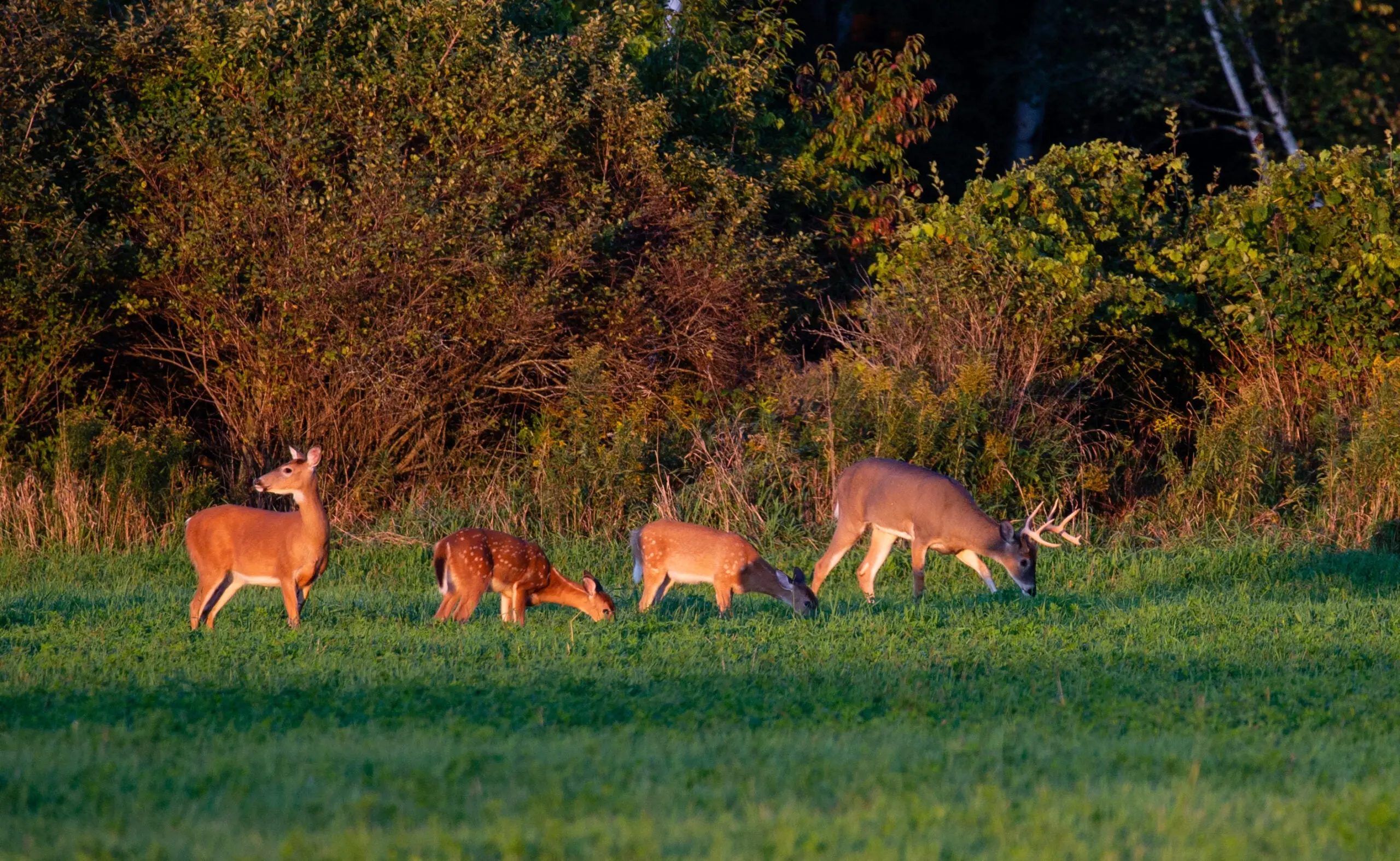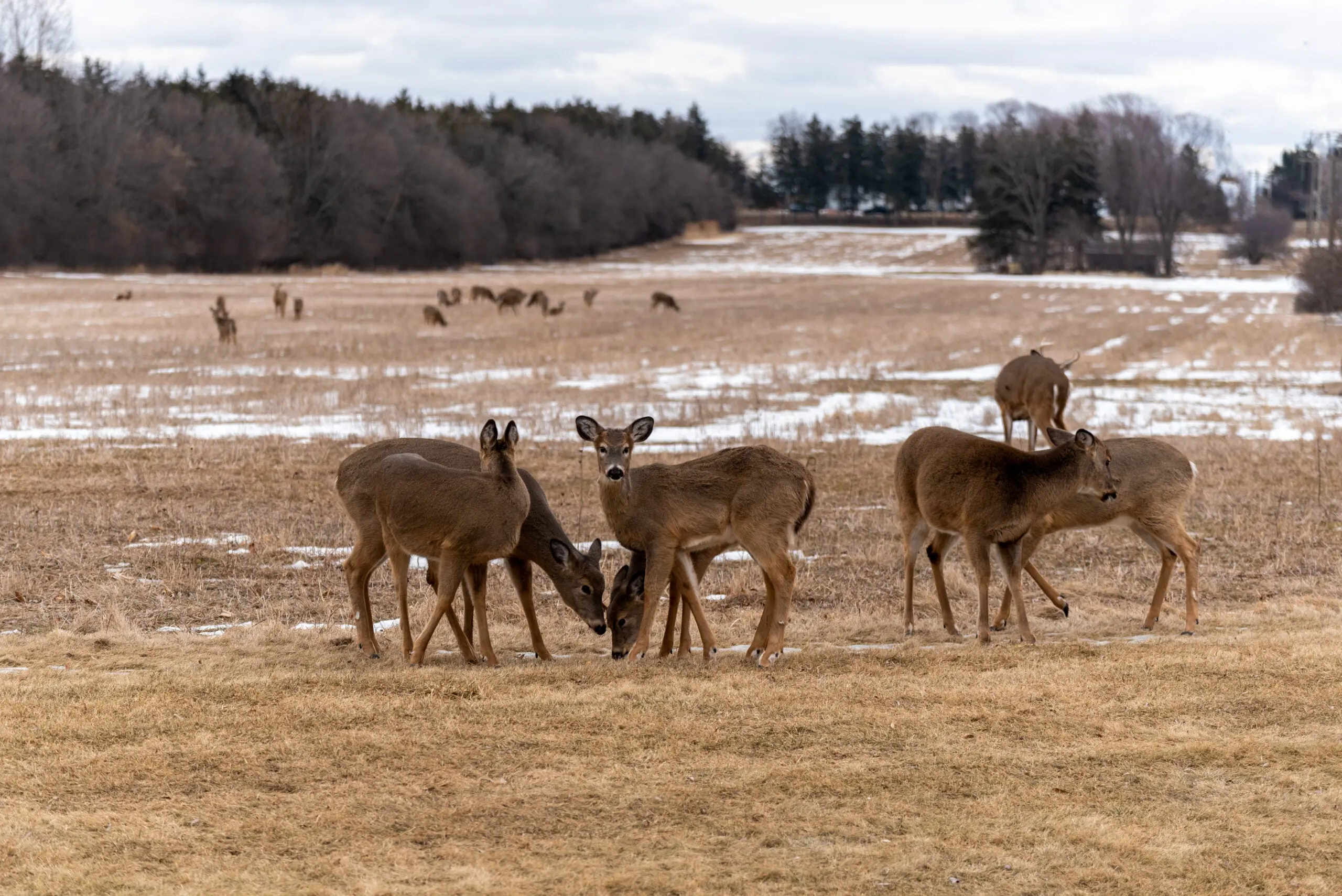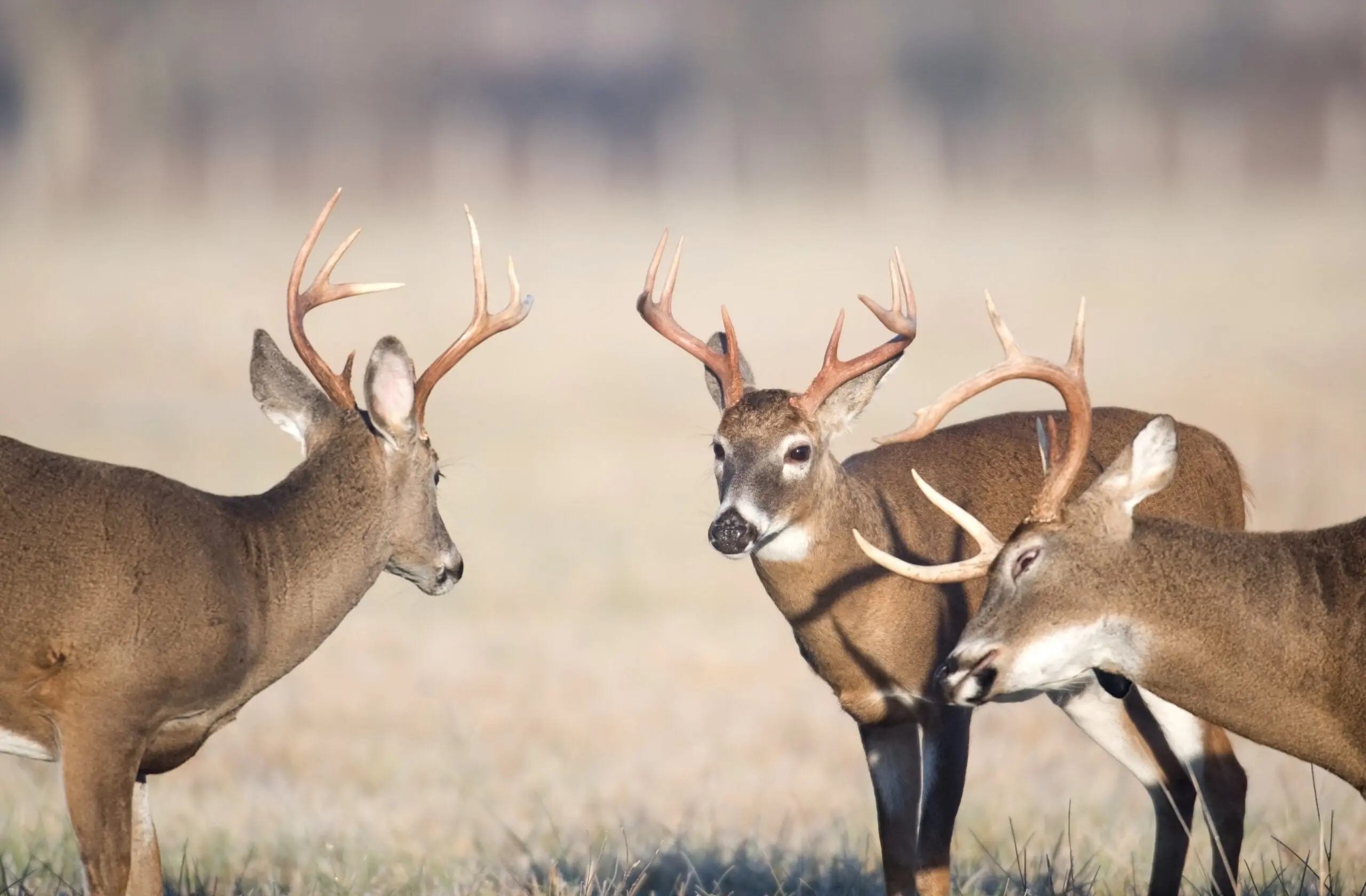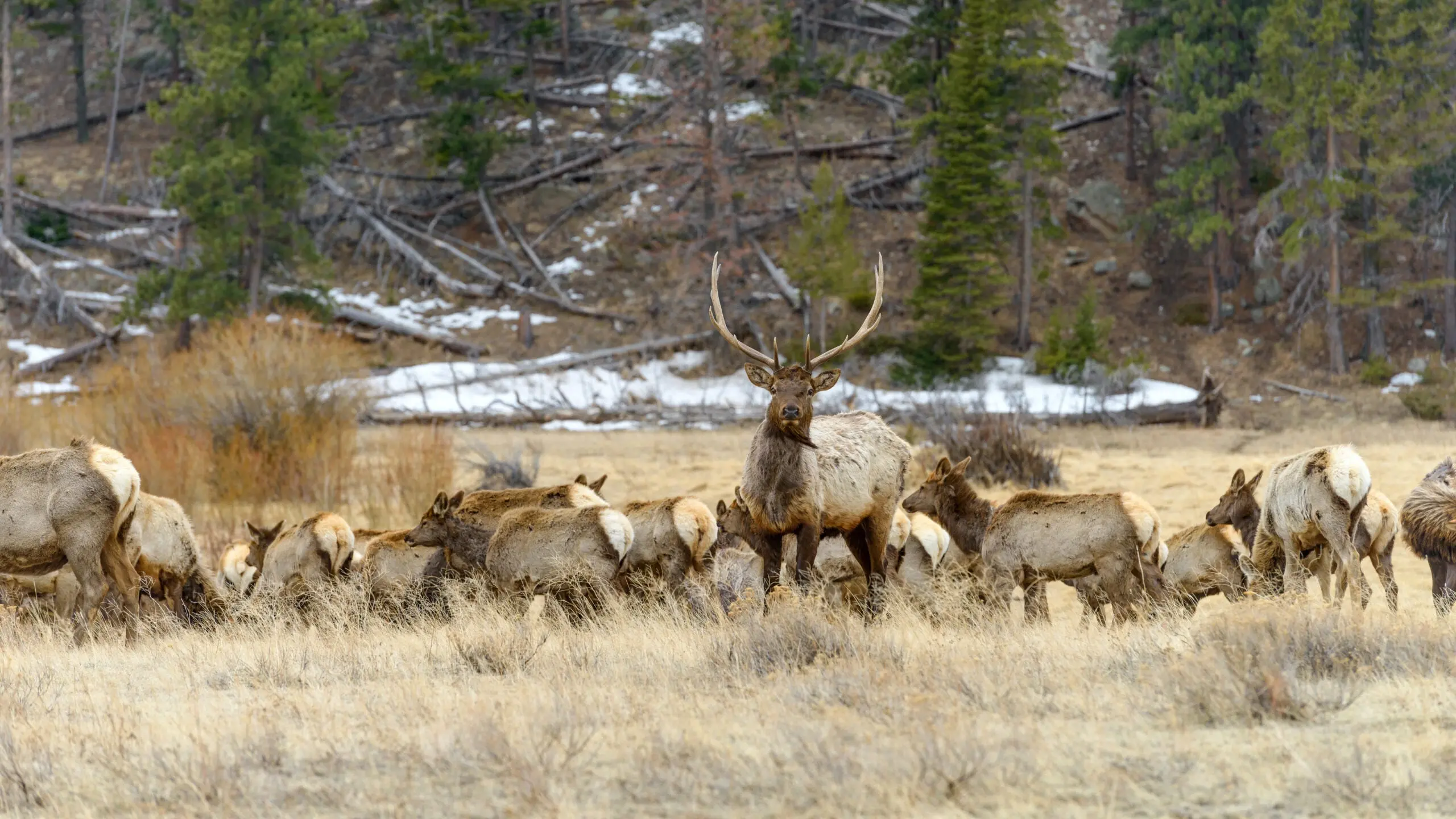Welcome to the fascinating and, to some, confusing world of multiple deer. While everyone seems to know what to call one deer, a surprisingly large number of people seem to have trouble when there are more than one. If you’re are a regular F&S reader
, this isn’t a problem for you, but we’re betting that know someone who says, or have at least heard someone say, “deers.” So, for them, we are here to help answer the question, what is a group of deer called?
The preferred plural of deer is “deer.” And a group of deer is generally called a “herd.” This holds true for all of the North American deer species and subspecies. A group of whitetail deer is a herd just the same as a group of mule deer, blacktail deer, or Coues deer. It even holds true when the deer species is not called a deer. A group of elk, caribou, or moose (all of which are part of the deer family) are all herds.
To most outdoorsy people, this is common knowledge and very straightforward, but when you look a little closer, there are, in fact, some nuances in the world of multiple deer that can understandably cause some uncertainty. The plural of deer, for example, is not as straightforward and many of us think. And while a group of deer is called a herd, it’s called other things too. So, let’s dig in.
_Learn how to subscribe to the new Field & Stream magazine here!
_
The Plural of “Deer” is “Deer”

Although a large group of deer can be called a herd, a small group like this are simply, “deer,” plural. mtatman / Adobe Stock
When most hunters hear someone say “deers” for the plural of deer, they’re apt to either snigger or correct, or both. But as a matter of fact, “deers” is technically an acceptable term
, and one that was once in common use. It’s no surprise, then, that we still hear it now and then.
That said, “deer” is now squarely the preferred plural, and it will never get you in any trouble. For example, let’s say you’re driving down a country road and spot four deer feeding contentedly in an alfalfa field. If you say “Oh look at the deers feeding,” some people will look at you sideways and say “deers?!” On the other hand, if you say, “Oh look at the deer feeding,” people will just say, “Oh yeah, cool.”
So-called “base,” or “no-change,” plurals—ones in which the plural term is identical to the singular—are common when talking about animals (one sheep, two sheep; one fish and a barrel of fish), and they are pretty much the rule when talking about deer (one deer, two deer; one elk, two elk; one moose, two moose).
A Group of Deer is Called a Herd—Except…

The word “herd” is usually reserved for larger groups of deer, or to refer to all the deer in a given area. Barbara / Adobe Stock
Any large group of deer can be referred to as a “herd.” You wouldn’t use that term for just handful of deer feeding in a field, but if there were enough of them, say 20 or more, you certainly could. When state game agencies talk about the number of deer living in their jurisdiction, they pretty much always refer to them as “the deer herd.”
There are some interesting exceptions, however. For example, if you see several male deer together, almost everyone I know would refer to them as a “bachelor group
.” It’s fairly common during the summer and early fall for male deer to hang out in same-sex groups of three or more (sometimes a lot more; I’ve counted as many as 12 bucks in a bachelor group). These boy-bands typically break up as soon as the bucks shed the velvet on their antlers, an event that usually happens in late August through early September.

Groups of three to as many as a dozen bucks will hang out together in summer and early fall. They are often referred to as “bachelor groups.” Tony Campbell / Adobe Stock
Oddly, there isn’t such a handy catch-all phrase to describe groups of female deer, though they also hang out together. In summer, it’s common to see an adult doe accompanied by one to three fawns. Sometimes, but not always, this adult female will start running with another mama deer and her babies. A small group of female deer and their offspring are most commonly just called “deer,” but they are also sometimes referred to as “doe family groups.”
That said, the elk rut presents a special case when it comes to groups of female deer. As the elk breeding season approaches (mid-September through mid-October in most areas), mature bulls will attempt to gather as many cows and calves (most of which are sexually mature, or close to it) into big groups widely known as “harems.” The bull’s goal is to both breed as many of these cows as will have him and to prevent other bulls from doing the same. As you might guess, the bigger a bull’s harem gets, the more challenging this endeavor becomes, especially when rival bulls hanging on the edge of the harem (called “satellite” bulls) are continually doing their best to cut a cow from the harem for their own purposes.

A larger group of cow elk gathered and guarded by a dominant bull during the elk rut is called a “harem.” Sean Xu / Adobe Stock
Final Thoughts on What a Group of Deer is Called
In the end, the safe bet is to call a small group of deer “deer” and a large group of deer a “herd.” That said, if you insist on adding an “s” to pluralize deer, there’s hope for you yet. Since caribou are members of the deer family, I included them in my research, and I was mildly surprised to find that “caribous” is an acceptable and somewhat commonly used plural for “caribou” (though “caribou” is also correct and more common). If you’re looking for the largest member of the deer species to provide an exception, however, you’ll get no help from moose. Multiple moose are “moose” not “mooses”—and they are only “meese” to Dr. Seuss.






